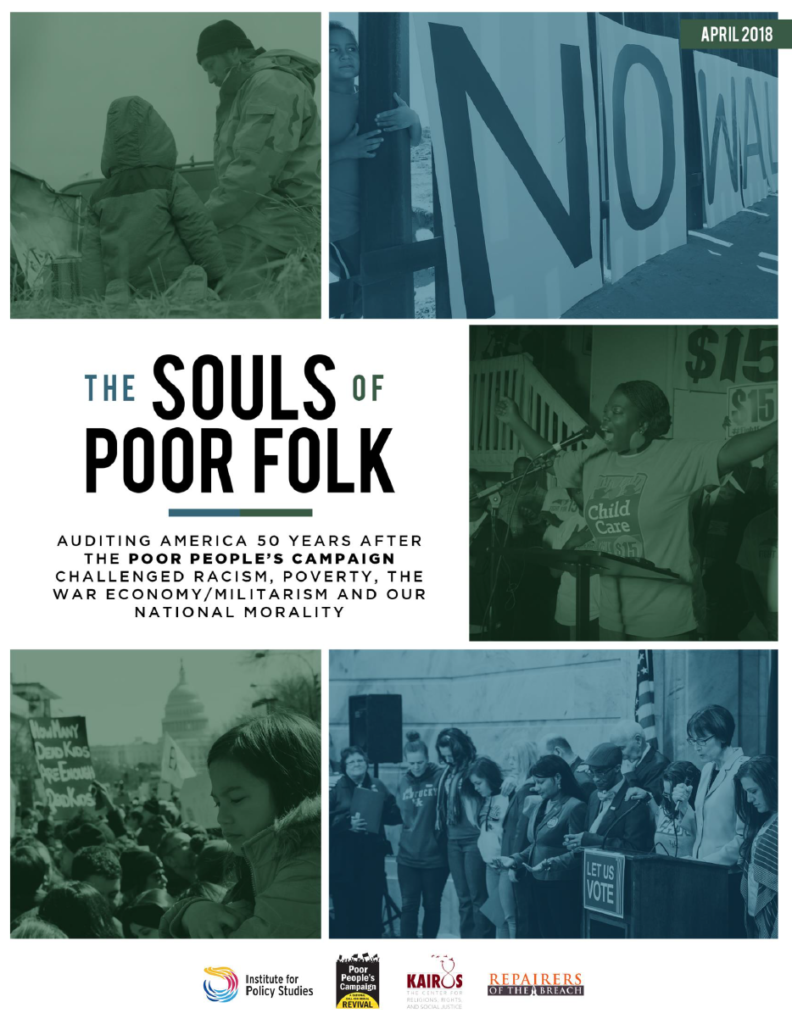Auditing America 50 Years After the Poor People’s Campaign Challenged Racism, Poverty, the War Economy/Militarism and Our National Morality
The Souls of Poor Folk traces the 50 years since 1968, when Rev. Dr. Martin Luther King, Jr., and thousands of Americans, alarmed at their government’s blindness to human need, launched the Poor People’s Campaign. As they marched up from the nation’s neglected shadows, Dr. King paused to answer a plea for support from sanitation workers on strike in Memphis. There an assassin snatched his life on April 4th.
Broken-hearted, this “freedom church of the poor” gathered by the thousands in Washington. They erected “Resurrection City,” their encampment on the National Mall, to demand that their government address bitter poverty in the wealthiest nation in the world. They confronted fundamental questions about America’s moral and Constitutional vision for all of its people, regardless of their wealth, race, gender or national origin. They demanded attention to the hungry children and inadequate schools from Appalachia to the Mississippi Delta to the devastated inner cities across America. They made moral witness against America’s long, pointless, and immoral war in Vietnam, and tried hard to be heard as they carried their testimony forward into public life. The hard history that compelled them to “pray with their feet,” as Rabbi Abraham Heschel said, also compelled many Americans to ask whether the republic for which they stood would ever stand for them.
50 years later, beset by deepening poverty, ecological devastation, systemic racism, and an economy harnessed to seemingly endless war, “The Poor People’s Campaign: A National Call for Moral Revival” likewise beckons our nation to higher ground. We call upon our society to see the predicaments of the most vulnerable among us and to halt the destruction of America’s moral vision. Hundreds of thousands across the nation today stand on the shoulders of that “freedom church” of 1968. We turn to America’s history—and to the realities of our own time—not to wallow in a fruitless nostalgia of pain. We seek instead to redeem a democratic promise enshrined in the U.S. Constitution and the Declaration of Independence, yet even more deeply rooted in the living ingredients of our own lives and embodied in the countless and largely unacknowledged grassroots activists who have labored to lift those founding documents to their full meaning. We come to remind our nation what truths we hold to be self-evident. We come to remind our nation what values we hold dear. In Washington and at state capitols around the country, we hope to make a new moral witness from our love for what Maya Angelou called “these yet to be united states.”
The Souls of Poor Folk is an empirical study that brings us toward an honest confrontation with our own history—how our path has unfolded since 1968 and how our nation trembles today for lack of moral vision. It summons our highest moral aspirations and diagnoses our deepest national ailments over five decades. It draws on academic research but also upon the testimonies of human beings battered by harmful public policies. Alongside the carefully assembled facts, you will hear the voices of America’s poor themselves, many of them now joining this movement. “Not everything that is faced can be changed,” James Baldwin reminds us, “But nothing can be changed until it is faced.”
The Souls of Poor Folk emphasizes the complex relationships between and across systemic racism, persistent poverty, the war economy and its inevitable militarism, and the ecological devastation from which none can escape. These issues tangle in our lives. If you are, for instance, a mother in Flint, Michigan, the decision of your government to create and then ignore your lead-poisoned water inflicts an environmental crisis, a health crisis, and a jobs crisis, but also a crisis of democracy. None of the families in Flint whose children are exposed to dangerous levels of lead voted to endanger their little ones. Those in power, however, not only made decisions that poisoned the water, but, when informed about this negligence, intentionally chose not to address or even announce the threat of lasting damage this posed to these children; not because this pollution did not matter, but because these people did not matter.
The issues confronted in The Souls of Poor Folk drive the day-to-day struggles of the poor and dispossessed. These issues demand that we dispel the notion that systemic racism, poverty, ecological devastation and the war economy hurt only a small segment of our society. More than 40,600,000 Americans subsist below the poverty line; this report additionally shows that there are close to 140 million people dealing with some combination of these crises every day. Nearly half of our population cannot afford a $400 emergency, which presents a structural crisis of national proportion that ties poverty to things like healthcare and housing. The devastation cuts across race, gender, age, and geography. It has carved a dangerous and deepening moral chasm in America and inflicts a tragic loss of purpose, even among the affluent.
50 years ago this spring, Dr. King and a multi-colored quilt of God’s children invoked America’s better angels, confident that the keys to our predicaments lay in the hearts of our people. None of our diverse faith traditions celebrate denying food to hungry children or devoting trillions to war and pennies to want. No moral vision embraces the denial of healthcare to our fellow human beings. Many Americans appear to have forgotten their own values and become blind to the needs of other human beings, even those they may still hold in their hearts.
These deep forms of myopia reflect still deeper failures of memory. “The struggle of humanity against entrenched power,” writes novelist Milan Kundera, “is the struggle of memory over forgetting.” Few recall that the war in Vietnam drained away many of the resources for the War on Poverty, which did much but could have done much more. “Bombs dropped in Vietnam explode at home,” Dr. King said. Fewer still recall the prophetic voice of the Poor People’s Campaign and that Dr. King died organizing a nonviolent revolution to push America toward a social ethos grounded in love. “We are called upon to raise certain basic questions about the whole society,” King preached before his assassination. “We must recognize that we can’t solve our problem now until there is a radical redistribution of economic and political power.” It is time that we turn to our past in order to understand our present, and then turn forward together to build a better future.
As shining and crucial the role of Dr. King and other notable leaders, neither the Poor People’s Campaign of 1968 nor our cause of love, mercy and justice today rolled forward on the gifts of a great leader. Our victories in the timeless cause of love and democracy have always required the devotion of thousands of ordinary people, local communities, grassroots groups, prophetic churches, and organizing traditions. In that spirit, the new Poor People’s Campaign will bring together people from all walks of life to the National Mall in Washington and to state capitols across the nation from May 13th to June 23rd, 2018, just over forty days to demand that our country see the poor in our streets, confront the damage to our natural environment, and ponder the ailments of a nation that year after year spends more money on endless war than on human need. The time has come to stand together and make a national call for moral revival.

